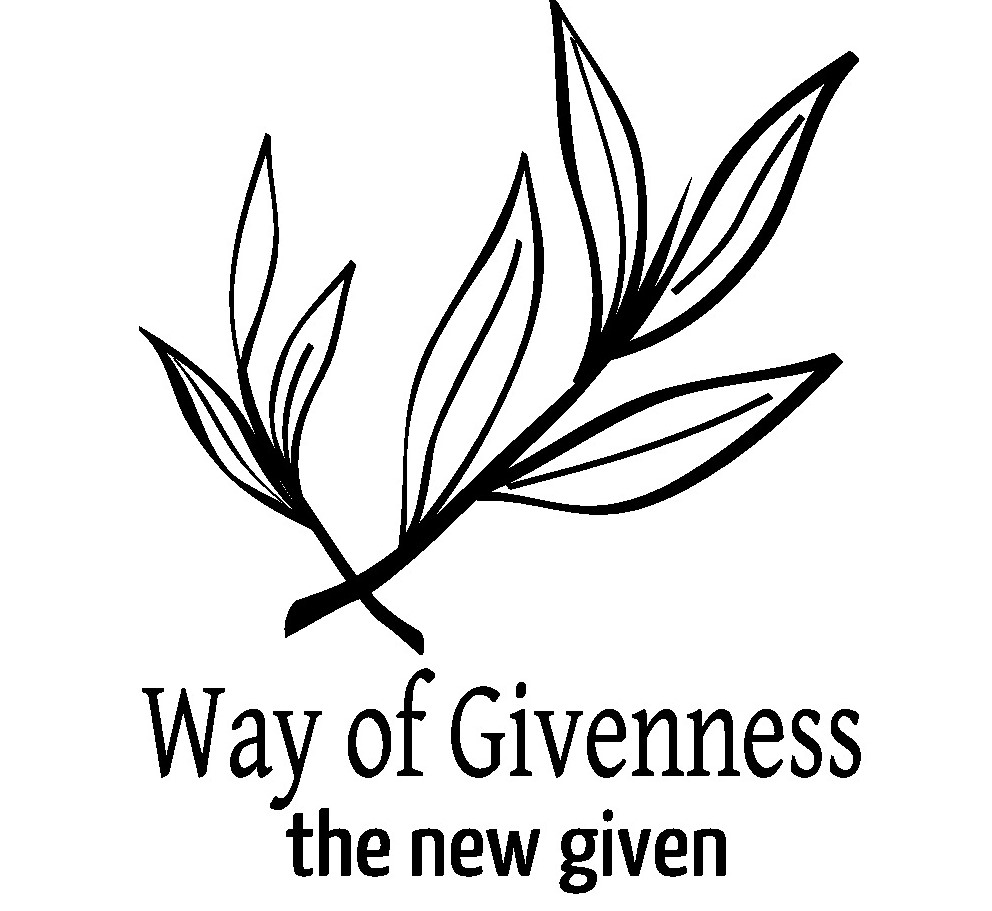- Home
- Daily Meditation
Every Life Knows a Provocateur
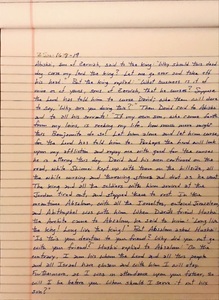
2Sam 16:9-19
Synopsis 2Sam 16:9-19 1/7/2019
Shimei cursed David. And he pelted David with stones and dirt and they road along the path.
Joab’s brother Abishai asked David for permission to kill Shimei. But David did not allow it. In fact, he observed that perhaps God had sent Shimei for that very purpose. And so Shimei boldly provoked the royal guard without them taking action.
Finally, the king’s party arrived at the Jordan. They were exhausted from the day’s events and from the journey.
Meanwhile, Absalom and his forces had entered the city. After they arrived at the palace, Hushai approached Absalom. As instructed, he offered to serve the new king.
David and Shemei
David refused to defend himself against the insults. And Shimei the Benjamite was not dissuaded by King David’s royal body guard. He kept up the mocking taunts as he followed David down the road.
Although Abishai was annoyed and offended, both he and David knew that the king was not in danger. Still, Abishai wanted to shut up the cursed Benjamite who deliberately insulted the king with impunity.
But David perceived the experience differently. He sensed that God might somehow be speaking through Shimei’s insults. And so he deferred vengeance wishing to remain open to what God was speaking. He respected God’s purpose for the moment. And he looked for meaning in the degrading circumstances.
Every Life Knows a Provocateur
The nemesis of Christ-followership is distraction. And offenses draw me into distraction. What’s more, they position me as a powerless victim in my own thinking.
Francis of Assisi began his ministry by begging for rocks and stones. His intent was to rebuild a small church. As he begged, children would pelt him with rocks and mud. And they taunted him as a lunatic. But the taunting only served to purify Francis’ intentions and draw attention to his steadfastness. And after a while, God used his example to draw willing disciples to Francis’ side. And this was the origin of the Franciscan brotherhood.
Perhaps like you, I’m looking to fulfill God’s purpose for my life in power. So what I find is that the clearer His demands become, the more likely I’ll experience someone who mocks me. And so I trust in the purifying effect of deliberate insults. And I believe that even this has a role in God’s larger plan for good.
“Though your beginning was small, your future will flourish indeed.” Job 8:7
My Faith
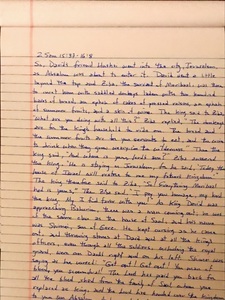
2Sam 15:37-16:8
Synopsis 2Sam 15:37-16:8 01/04/2018
As Absalom approached, David continued to manage the evacuation of Jerusalem from just outside the city.
While there, he encountered Ziba. Although David had dispossessed him, Ziba had come out with provisions for David and his army. Ziba had recognized the opportunity to help David might also be an opportunity to help himself. And so he mentioned that Meribaal had remained behind hoping that the House of Saul would be restored in the northern tribes. David was incensed and reversed his earlier decision – giving the land back to Ziba.
As David and the royal guard followed behind the rest of the army, a Benjamite named Shimei came out and mocked David. And even though Shimei mocked him with contemptuous disrespect, David did not rebuke him.
Ziba’s Faith
Ziba was a Benjamite and a near relative of Saul. Somehow, he had taken control of most of Saul’s land holdings. When David inquired if anyone of Jonathan’s children had survived, he discovered that Meribaal was alive. And so, David took all of Ziba’s possessions and gave them to the rightful heir. He also commanded that Ziba manage the holdings for Meribaal.
Now Ziba saw David in trouble. And rather than spitefully rejoice in his difficulty, he saw an opportunity. He thought to himself, “If I help David and infer Meribaal’s disloyalty, then perhaps I can get the land back”.
And so, Ziba bet on David. He gambled, believing that David would win back the throne. Accordingly, he approached David in his hour of deepest distress and offered help. Accordingly, David restored him to ownership of the land.
My Faith
In the gospel of Luke, we receive the perplexing parable concerning the unjust steward. Jesus described a man who lost his job. Realizing he was about to be terminated, the man used his master’s receivables account in order to enrich himself.
We are the “children of light” – those who have been born again. And while we live in this world, we recognize that we have a dual citizenship. We are children of light. We are, at the very least, provisional citizens of the communion of saints. But we are also in this world. And though “not of this world”, my reality is that I have to deal with the synthetic political community where I find myself.
So, use wisdom to produce value. Do it even if the primary consumer isn’t yet recognized as a child of light.
“For the children of this world are more prudent in dealing with their own generation than are the children of light” Luke 16:8
True Friendship
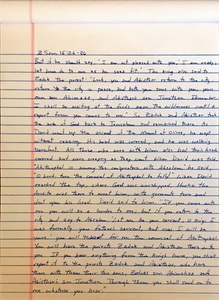
2Sam 15:26-36
Synopsis 2Sam 15:26-36 01/03/2018
Zadok and Abiathar intended to join with David. And they also intended to evacuate the Ark of the Covenant with them. But David refused to allow the Co-High Priests to bring the ark. However, he did enlist their support as they remained behind to tend the Tabernacle in Jerusalem. And he commissioned them to send a report of Absalom’s plans whenever they received information.
In a similar way, David urged Hushai the Archite to remain in Jerusalem. And he asked him to do whatever he could to frustrate the counsel of Ahithophel.
David’s Friends
Zadok and Abiathar were friends to David. They loved him. And they were willing to give the lives to defend him.
Theses weren’t casual friendships. For, David loved God. And he loved the priests who ministered before God. For him, they were ambassadors and interpreters of purposes and designs of the one true God. He esteemed all priests.
So, over the course of his life, he sought the will of God through the ministry of the priests. As a result, the priests knew David well. And they prayed for him. And they interceded on his behalf.
These friendships were based on the value each man saw in the other. Accordingly, these men forged their friendships in the midst of great trials. And they grounded their relationships in loyalty.
True Friendship
I live in the internet age. And so I facilitate and mediate friendships through technology. And there’s nothing wrong with that per se. But I often find myself asking, “Are the relationships I call ‘friends’, really friends?”
The bad news is that true friendship is loyal, even in adversity. It’s bad news because the most certain way to know who my true friends are is to experience great adversity.
Of course, the good news is there are few things more satisfying than knowing a friend “who sticks closer than a brother.”
So, if you want a friend, then be this kind of friend, even in adversity.
“There are friends who bring ruin, but there are true friends more loyal than a brother.” Prov 18:24
My Sovereign God
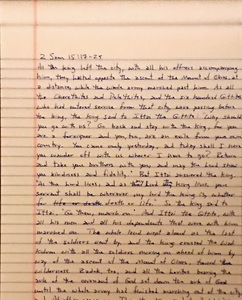
2Sam 15:17-25
Synopsis 2Sam 15:17-25 01/02/2018
Absalom rebelled against his father King David. And by all reports, he was advancing on Jerusalem with an army. So, David directed the evacuation of Jerusalem.
He led the people out of the city near the Mount of Olives. From there, he directed the route for their evacuation and managed the forces as they passed him by. Remarkably, he bid recently activated foreign troops to remain behind and not take a side in the civil conflict. But they insisted to remain with him.
Similarly, Zakok and Abiathar came with their sons carrying the Ark of God. But David bid the them to return the ark to the tabernacle. And so, the two high-priest reluctantly agreed. But they only did so with the understanding that they stood ready to help David in any way they could.
The Sovereign God of David
David intuitively recognized that bringing out the Ark of the Covenant was a mistake. On the one hand, he built up Jerusalem to be God’s residence. So for him, the importance of God’s residence transcended his own kingship. Accordingly, bringing out the Ark made was counter-intuitive in the light of his vision.
On the other hand, David was also aware that God could not be manipulated by simply carrying the Ark of the Covenant into battle. And history proved this.
What’s more, David believed God was sovereign over his circumstances. If God intended, then David knew he would return to Jerusalem to worship God at the tabernacle. David trusted that God was in control of his circumstances. And this faith was not dependent on outcomes.
And so he trusted in God’s plan for his life.
My Sovereign God
Here is a claim: God is sovereign. There is very little in life that is more humbling and yet more emboldening than knowing this.
I am exactly where I am supposed to be. And, God has granted me free will. So, in God’s design, my circumstances meet my purpose in this life exactly. For this reason, Saint Paul tells us that; All things work together for good for those who love God…
God has you. So be bold.
We know that all things work for good for those who love God, who are called according to his purpose. Rom 8:28
My Refuge
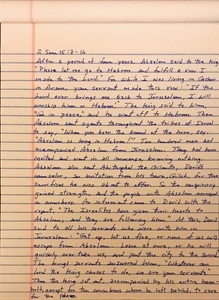
2Sam 15:7-16
Synopsis 2Sam 15:7-16 1/1/2019
Absalom consolidated power for four years. After which, he approached King David and asked permission to go to Hebron to worship God there. And David granted permission.
However, once in Hebron, Absalom launched a conspiracy to overthrow King David and take over the monarchy in his place.
And Absalom was clever. He had invited several prominent individuals to accompany him prior to declaring the coup. Although they had no prior knowledge of Absalom’s plans, the prominent invitees were naturally associated with Absalom’s coup attempt. As a result, many followed Absalom knowing they would be persecuted if Absalom failed.
Soon, an informant brought news of Absalom’s coup to King David. So, David began to arrange his forces and his family to escape the coup. And he began by fleeing from Jerusalem.
David’s Refuge
David was uncertain of what was happening. Seemingly out of nowhere, he received this report. Absalom had declared himself king. And presumably his forces were marching toward Jerusalem. Clearly, a coup was unfolding. And it was likely to be bloody.
No matter what, this was going to end badly for David. One the one hand, David loved his son and could not imagine wanting him dead. But on the other, he rightly wanted to live. And he wanted to reign in the kingship where God had placed him.
Yet his uncertainty did not end there. More disturbingly, he did not know who was on his side. And he did not know who wasn’t. So, he could not really know who to trust.
And in this moment, he sought refuge in the Lord. He chose to trust God and leave the outcomes up to Him.
My Refuge
Despite the explosion of technology and communications available at my fingertips, uncertainty still abounds. In fact, it’s a daily experience.
I suppose it’s because, in human terms, life often presents itself as difficult to interpret. And on top of this difficulty, the more pressing challenge is that I don’t really know who I can trust.
And so in this, I have an opportunity. I can choose to trust God. This is the way of David.
And this is the Way of Givenness.
“Therefore every loyal person should pray to you in time of distress. Though flood waters threaten, they will never reach him. You are my shelter; you guard me from distress; with joyful shouts of deliverance you surround me.” Psalm 32:7
All My Shortcuts
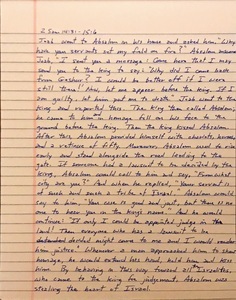
2Sam 14:31-15:6
Synopsis 2Sam 14:31-5:6 12/31/2018
Absalom set Joab’s barley field on fire. He was frustrated because Joab chose to ignore his requests to speak with the king.
But Joab recognized that it was time to complete the reconciliation between Absalom and King David. And so, he approached David. And David agreed.
Absalom humbled himself before the king. And the king accepted his act of repentance. So Absalom was admitted back into the company of the entire royal family.
But then, Absalom began to establish a base of power. He developed a regular following of fifty men. And then, he began to ingratiate himself to the people of Israel in order to win popular favor.
Absalom’s Shortcut
Absalom began to imitate the behaviors of people who seek fame and power. Or more specifically, he seemed intent to get power through fame. So, he built a network of devoted followers. And then, he made a broad appeal suggesting that he could bring a better order to the people.
All My Shortcuts
There is this tendency in me to chase after success. And unless I master it, the tendency can become a negative cycle.
It goes like this: I imagine myself in some alternate state of bliss. Usually this involves having just a little bit more money. Or perhaps a little bit more notoriety. Or perhaps, a lot more of both.
But then I hang this imagination or some arbitrary performance indicator. Say, a net worth of $1 million, or $10 million. Alternatively, my arbitrary performance indicator might be 10,000 followers on Facebook, or some other social metric. And then I go out and get that. I get the $1 million. Or the $10 million. Or, the 10,000. And then I find that I’m still empty. And because the goals I set were arbitrary, the so-called successes remained unfulfilling.
Perhaps others share this experience.
So, I will resist the shortcuts to a fully integrated life. Let my focus be on delivering value into the lives of others. Let my measure be the freedom to deliver a useful blessing.
“Those who want to be rich are falling into temptation and into a trap and into many foolish and harmful desires, which plunge them into ruin and destruction.” 1Tim 6:9
My Determination

2Sam 14:21-30
Synopsis 2Sam 14:21-30 12/28/2018
King David spoke to Joab. As he did, he authorized Joab to return Absalom to Jerusalem without fear of prosecution.
So Joab went to Geshur. And there he retrieved Absalom. However, as they returned to Jerusalem, King David made it clear that he would not receive Absalom into his presence. This went on for two years.
Finally, Absalom decided to ask Joab to intercede with the king on his behalf. So, Absalom sent messengers to Joab on two different occasions. But Joab did not respond to either of the messengers. As a result, Absalom resorted to a more extreme measure to get Joab’s attention. He sent his servants to Joab’s barley field and set it on fire.
Absalom’s Determination
Absalom was patient. But, he was also determined. And he wasn’t used to being rebuffed.
So, setting Joab’s field on fire just to get his attention wasn’t that surprising. He refused passivity. Accordingly, he fixed his mind on full reconciliation with King David. For his heart valued full restoration to his former position in the family.
My Determination
There will always be obstacles between me and the potential that God has given me. Interestingly, it doesn’t have to be an adversary. In fact, the obstacles don’t even have to be outside of me.
An obstacle could be a bad habit. Or, it could just be the inertia that resists all action.
But whatever the case, focused attention is what gives the resiliency to overcome. Being a little bit obsessive about following Jesus opens the door to a lot of success.
“I have the strength for everything through him who empowers me.” Phil 4:13
Teaching Conclusions From Stories
Synopsis 2Sam 14:13-20 12/27/2018
King David talked with the woman from Tekoa. After a little while, he realized that Joab had sent her. And he recognized that her story was designed to teach him something. In fact, Joab intended to remind David of mercy. And by this, he made clear a just way of reconciliation between David and Absalom.
David Drew A Conclusion
Joab had a purpose. He sent the woman of Tekoa to help King David. He intended to help the king see his situation more objectively. So, the woman of Tekoa didn’t mention Absalom. Instead, she and Joab made a up a fictional case of a widow and two sons. And then she presented it to David as though she was a desperate widow.
So, David listened to the woman’s story. He apprehended it clearly. But he didn’t invest himself emotionally in the situation. And because of this, he recognized that granting mercy to the widow was rationally appropriate. Of course, it was only after David had dispassionately come to this conclusion that he could begin to see that Absalom’s case also justified mercy.
Teaching Conclusions From Stories
Wisdom is about process. It’s about recognizing the causes of things. And it’s about identifying the circumstances when I can anticipate causes to produce predictable outcomes.
What’s more, Wisdom Literature is born from the historical books of scripture. It draws conclusions from the experiences of the people of God as they lived out their lives. As they gained experience with God and with one another, they began to recognize the patterns of behavior and character that produce predictable outcomes.
And then they wrote these observations and conclusions down in seven books. These include Job, Proverbs, Psalms, Ecclesiastes, Wisdom, Sirach, and the Song of Songs. And these have become the touchstones of the character and behavior that produces the good, and the right, and the beautiful.
And God gave these to you, and to me, as free gifts. A heritage of faith granted by God and manifest in the lives of our father and mothers in faith.
“All scripture is inspired by God and is useful for teaching, for refutation, for correction, and for training in righteousness, so that one who belongs to God may be competent, equipped for every good work.” 2 Tim 3:16-17
Reconciling the Community

2Sam 14:13-20
Synopsis 2Sam 14:3-12 12/26/2018
Joab wanted King David to reconcile with his exiled son Absalom. So, in order to persuade the king, he found a wise woman to ostensibly “seek justice” from the king. She posed as a widow. And she told the king a story of how one of her two sons had killed the other. As a result, the first son was to be killed as justice under the law of Moses.
But, she pointed out, if her son was killed for the sake of justice, then she would have no sons. And, she would have no means. She would become destitute. And she questioned how that could be good and just.
So, King David granted her request. He issued a moratorium preventing injury to her sole surviving son.
Wise Woman of Tekoa
After killing Amnon, Absalom fled to Geshur, a kingdom to the north of Israel. He went to Geshur because he had relatives there. In fact, the king of Geshur was Absalom’s grandfather. For David had married Maacah, the daughter of the king of Geshur, as one of his wives.
Joab wanted David and Absalom reconciled. From his perspective, he did not think it wise to have a royal son exiled and protected by a foreign king. The situation represented a threat to David’s throne and to the leadership of Israel.
So, Joad sent a “wise woman” to David with a contrived story about her two sons. She told the story in order to induce David to give mercy to a surviving son who had murdered his brother.
Joab’s plan was to get David to admit that extenuating circumstances sometimes justified mercy. And when he admitted to this, then he would be able to grant mercy to Absalom. At least, so Joab thought.
Reconciling The Community
Community is at its best when the people are united. Division and discord undermine the benefits of community. And distrust along with mutual contempt tend to destroy the good of living in community.
But in every community I have ever experienced, there are always unavoidable elements of division and discord. Each of us comes to community with expectations and desires. And when my expectations and desires go unmet, then it’s easy for me to feel undervalued and distrustful.
So, become a peacemaker. And, look for ways to be reconciled. I’m not talking about “forgive and forget”. Honor the reality of injury (nobody ever really forgets), but commit to the common good of community anyway.
Reconciliation requires determined effort. This is about “forgive and accept the other person once again”.
“How good and how pleasant it is, when brothers dwell together as one!” Psalm 133:1
Anxiety and Distress
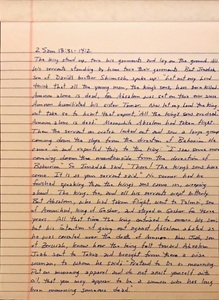
2Sam 13:31-14:2
Synopsis 2Sam 13:31-14:2 12/25/2018
King David was distraught. For a report had come to him that Absalom had killed all of the royal sons. But Jonadab convinced David there was an error. He recognized that Absalom’s intention was to get justice for Tamar. Accordingly, he recognized that Absalom had only killed Amnon. And Jonadab’s interpretation proved to be true. Even so, David lamented Amnon’s death.
For his part, Absalom fled to Geshur after murdering Amnon. And he stayed there under the protection of Talmai, king of Geshur, for three years.
Back in Jerusalem, Joab had concluded that Absalom’s exile had gone on long enough. And so he contrived a plan to reconcile Absalom with King David.
David Feared The Worst
David had questions. He felt unsure. And he wondered why Absalom wanted him to come to a feast in the first place. Additionally, he felt unclear on why Absalom should want his brothers to attend a feast. So, when the erroneous news came that Absalom had killed all of the royal sons, the report initially seemed plausible to him.
In that moment, David was filled with grief and anxiety. In a single moment, the most important part of his plan to build a dynasty was apparently destroyed. And his hopes and dreams began to fade before his eyes. Very likely, he also wondered if this was the beginning of a coup – if Absalom would be coming against him.
Of course, none of these feared things turned-out to be true.
In fact, Absalom had only killed Amnon in order to get justice for his sister.
Yes, this was terrible in its own right. But it wasn’t anything like the anxious thoughts that raced through David’s mind.
Anxiety and Distress
So, what’s the problem with anxiety and distress?
The problem with anxiety is that it prevents me from thinking straight. Think of it this way; anxiety is the experience of feeling afraid when the thing feared is not actually present.
It’s the dark side of fantasy. It’s like being trapped in a realistic dream where the worst possible thing always happens. And It can be debilitating. Caught in this pattern of thinking, I experience the disvalue of my fear as if the feared outcome were actually happening. Even though very little may have changed in my physical circumstances, I live through the stress. Accordingly, in anxious moments, I feel distracted. And I’m much less effective.
The answer to this is to come back to reality. So, if I return my attention to what’s actually happening right in front of me, then I have the freedom to deal with what is – rather than the great “what if” of what might be.
Of course, the ultimate reality is that God has my back. So, I don’t have to worry because I know that God is working through whatever circumstances I am experiencing. And, He always remains unsurprised. And, He never fails.
All of this gives me the freedom to meet the potential of my present moment – whatever challenge it may present – and turn it into the thing I always, actually wanted.
“Do not fear: I am with you; do not be anxious: I am your God. I will strengthen you, I will help you, I will uphold you with my victorious right hand.” Isaiah 41:10
